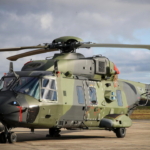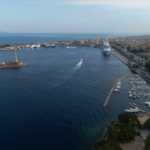The Direction Générale de l’Armement (DGA), the French defence procurement agency, confirms the acquisition of six additional tactic transport helicopters (Caiman model) from NH Industries, the Italian-French-Dutch industrial group owned by Finmeccanica, Airbus and Fokker. The delivery has been scheduled between 2017 and 2019.
[subscriptionform]
[level-european-affairs]
These new acquisitions are part of a more comprehensive renewal program to increase the helicopter fleet up to 74 Caiman units (44 of these to be delivered by 2019). The target is to reach, by the end of 2025, a fleet of 115 tactical NH90 helicopters, goal set in the Defence and Security White Paper in September 2013. As Guillaume Faury, President and CEO of Airbus Helicopters, highlights, “French armed forces have deployed the NH90 operationally in Mali, where its outstanding endurance, versatility and manoeuvrability have been greatly appreciated”.
The decision follows the request from the Army Air Corps to strengthen the capabilities of Operation Barkhane, in Africa. Last January, Gen. Oliver Gourlez de la Motte, chief of the Army Air Corps, announced the service goal to strengthen its forces, by providing 10 additional helicopters to the fleet, to be chosen between both attack and transport models. Last month, indeed, the DGA has ordered from Airbus Helicopters 7 Tiger attack helicopters, which will be delivered between 2017 and 2018.
The aim is to improve the capacity of French armed forces to conduct air-land operations in the Sahel region, in Sub-Saharan Africa. The NH90 has already been deployed in several operational theatres, showing capabilities and characteristics that make it an important resource for French forces engaged in Operation Barkhane. First of all, as already mentioned, its versatility. The NH90 can be employed in response to different tactical needs:
- Troop and light armament transport, as it can carry up to 20 soldiers or 2.5 tonnes armaments;
- Casualty evacuation with 12 stretchers;
- Cargo airlift;
- Combat, search and rescue operations.
Moreover, the additional equipment allows it to fit various needs that might arise in the operational theatre. The NH90 is provided with an automatic pilot and fly-by-wire (FBW) controls, a system that replaces traditional manual controls with an electronic interface. This reduces the workload for pilots, and makes the NH90 easier to manage. In addition, night vision sights, armor protection and electronic counter-measures make it suitable for combat operations.
These characteristics show how this vehicle becomes essential in an environment such as Sub-Saharan Africa. As we know, Operation Barkhane is a counter-terrorism operation, led by France in the Sahel region since August 2014, with Mali, Niger, Burkina Faso, Mauritania and Chad as participating countries. The aim is to contrast the presence of jihadist militants in the region, supporting the efforts of partner countries and to prevent the creation of terrorist sanctuaries. The 3000 soldiers engaged in the mission are based in two permanent fields, one in Gao (Mali) and the other in N’Djamena (Chad). Detachments are sent to temporary bases, located in the mission’s participating countries, from where missions to support their soldiers are launched. Therefore, it is clear how troop and armament transport is necessary to conduct the operation. Moreover, the particular environment –temperature, geographical and territorial conformation, etc.- is a key factor in elaborating interventions. The NH90 proves to be suitable for the African environment, given its endurance and versatility, which is essential in areas where difficulties and resource scarcity might undermine the aim of the mission and the lives of the soldiers involved. “The additional order of six NH90- says Guillaume Faury-…confirms the essential role that new-generation multi-role helicopters play in modern operations”.
It seem that attacks and threats to French nation and security have not changed its commitment towards foreign operations, in particular in missions targeting Islamic terrorism. By contrast, those elements, which proved to be effective, have been strengthen and pressure is made to the Government in order to reinforce French military capabilities. It is not just a matter of number of forces available but also – and most of all- of quality and technology, which have to be suitable for the type of environment and threat that soldiers are facing.
Paola Fratantoni
[/level-european-affairs]







